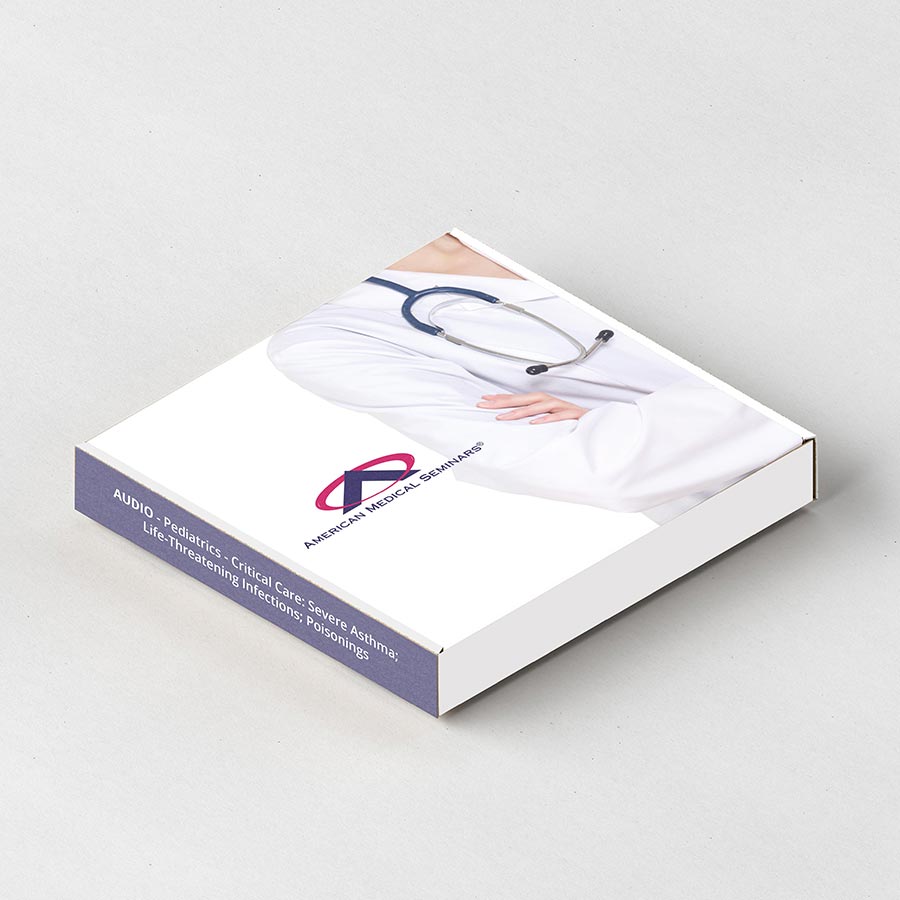Product Description
Expiration Date: July 1, 2019
Title: Pediatrics – Critical Care: Severe Asthma; Life-Threatening Infections; Poisonings
Faculty: Robert A. Belfer, M.D.; Mark D. Joffe, M.D.; and Richard J. Scarfone, M.D., F.A.A.P.
Original Release Date: July 1, 2016 Review Date: July 1, 2017 Expiration Date: July 1, 2019
TOPIC 1: Emergency Department Management of Severe Asthma.
Upon completion of this session, using systematic reviews and studies, the participant should be able to: COMP
- Develop an organized approach to the initial management of children with severe asthma.
- Summarize the role of continuously nebulized albuterol for children with severe asthma.
- Administer magnesium sulfate or intravenously administered beta2-agonists in an appropriate manner.
TOPIC 2: Life-Threatening Pediatric Infections.
Upon completion of this session, using national Evidence Based Medicine sources including Cochrane Collaboration and published guidelines from sources including the American Academy of Pediatrics, the participant should be able to: EBM, GL, COMP
- Conclude that as newer immunizations eradicate many serious infections, we are still faced with certain pathogens that can cause severe morbidity and mortality.
- Recognize, diagnose and manage the following diseases:
- Toxic Shock Syndrome;
- Meningococcemia;
- Rocky Mountain Spotted Fever;
- Kawasaki
3. Develop an approach to the patient who presents with fever and a rash.
TOPIC 3: Pediatric Poisonings.
Upon completion of this session, using AAP guidelines and evidence-based medicine, the participant should be able to: EBM, GL, COMP
- Review data on pediatric poisonings including recent trends.
- Employ appropriate gastrointestinal decontamination in a variety of pediatric ingestions.
- Discuss management of several specific poisonings.
- The receipt for any incentive-associated purchase will designate the value of the gift card separately from the cost of the learning activity.
- This incentive may have implications on your tax reporting obligations. Any reimbursed amount must be declared as personal income for tax purposes.


